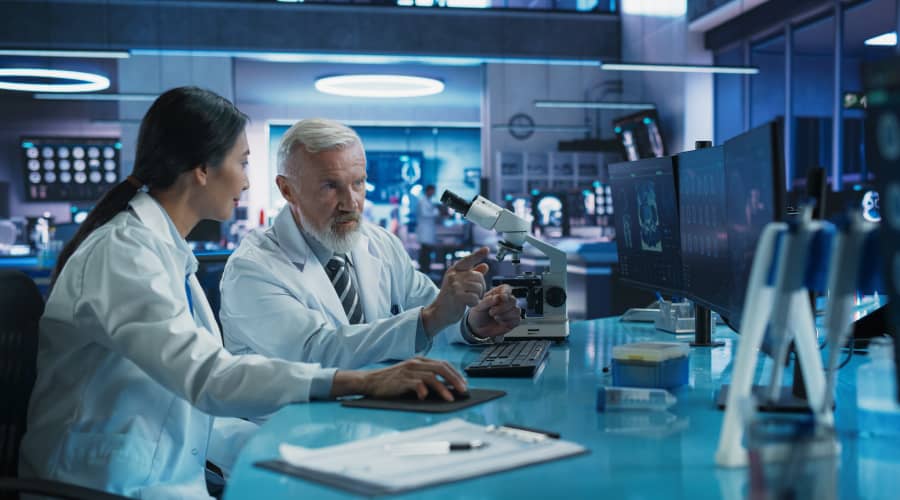
New England is well-known for providing surgeons and medical students with a world-class education. Harvard, Yale, and Dartmouth have produced thousands of physicians over the years and are generally considered some of the finest medical schools in the country.
But behind the headlines about groundbreaking research and medical breakthroughs, there’s a deeper story of generosity. Families who make a body donation to science are playing a crucial role in helping tomorrow’s surgeons gain the critical, hands-on skills they need before stepping into an operating room with a live patient.
Cadaver Labs in New England
Cadaver labs are specialized facilities where medical students and surgical residents study human anatomy and practice complex procedures on donated bodies. Unlike textbooks or computer models, cadaver labs allow trainees to see and feel the intricacies of the human body in a way simulations simply cannot replicate.
Body donations to science are essential for:
- Learning anatomy: Giving students a tactile understanding of organs, tissues, and structures.
- Surgical skill development: Providing practice for everything from suturing to advanced procedures.
- Innovation: Allowing researchers and educators to test new techniques and medical devices.
Make no mistake, though. Cadaver labs only exist because of those individuals making the decision to make a body donation to science.
How Do Surgeons Learn to Operate?
Learning to operate is far more complex than mastering a classroom lesson or theory. While digital simulations are an important tool and can help surgeons learn, they can’t prepare someone for the realities of working with the human body on their own. Surgeons need to understand the variations in human bodies, what it feels like to cut through real tissue, and the emotional side of life and death in the operating room.
Hands-on training with donated bodies provides:
- Mastery of anatomy: Seeing, touching, and navigating the human body as it truly is.
- Development of delicate hand skills: Refining the fine motor skills needed for safe and precise surgery.
- Confidence building: Reducing uncertainty before entering a live operating room.
- Emotional resilience: Preparing students for the psychological challenges of surgery.
The experience of working with cadavers is transformative. As noted in the National Library of Medicine, many young surgeons struggle not only with technical skills but also with the emotional realities of operating. Hands-on work in cadaver labs helps new surgeons start their careers with the technical ability and emotional maturity they need.
Leading New England Medical Institutions Using Cadaver Labs
Some of the world’s most respected medical schools are located in New England, and relying on cadaver labs supported by donor generosity:
- Harvard Medical School (Boston, MA) integrates cadaver labs throughout its anatomy and surgical training programs.
- Yale School of Medicine (New Haven, CT) makes cadaver-based anatomy a cornerstone of its first-year curriculum.
- Boston University School of Medicine (Boston, MA) offers robust anatomy and clinical surgical training with donated bodies.
- Tufts University School of Medicine (Boston, MA) blends cadaver training into clinical education pathways.
- University of Massachusetts Chan Medical School (Worcester, MA) emphasizes hands-on anatomy instruction through cadaver labs.
- Dartmouth Geisel School of Medicine (Hanover, NH) ensures cadaver-based education remains central to anatomy and surgical learning.
Each of these institutions depends on body donations to science to continue producing qualified surgeons.
Why Body Donation to Science Is Essential
Without donors, cadaver labs in New England would not exist. However, it’s important to know that not all medical schools accept direct body donations, or they may only do so when certain research or teaching programs are active. You may also be responsible for some costs for funeral home services or transportation.
By choosing United Tissue Network, a 501(c)(3) nonprofit, nearly all whole-body donations are accepted, ensuring that your gift will be used to support medical education and research.
General qualifications include:
- Adults over the age of 18 with no upper age limit
- Free from certain infectious diseases, such as HIV/AIDs or hepatitis
- No major trauma that prevents anatomical study
Families who choose this path also benefit from no-cost direct cremation, with cremated remains available to be returned upon request.
A Legacy That Trains Surgeons
Cadaver labs in New England’s top medical schools stand as a testament to the generosity of donors. By choosing body donation to science, you get the practical benefit of free, direct cremation while also creating a legacy that helps train healers, advance medicine, and save lives.
We hope you will consider becoming a whole body donor and get free cremation. You can pre-register online in just a few minutes or call (877) 738-6111 to speak with one of our compassionate Donor Coordinators, available 24/7.
